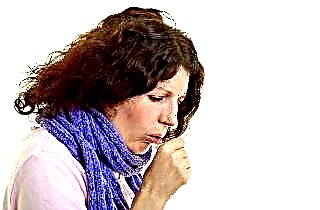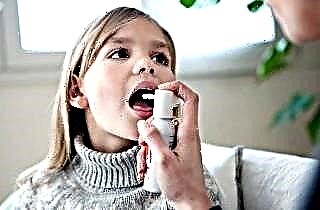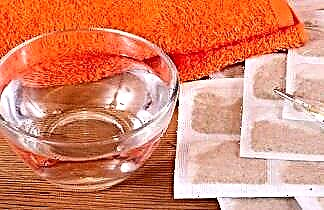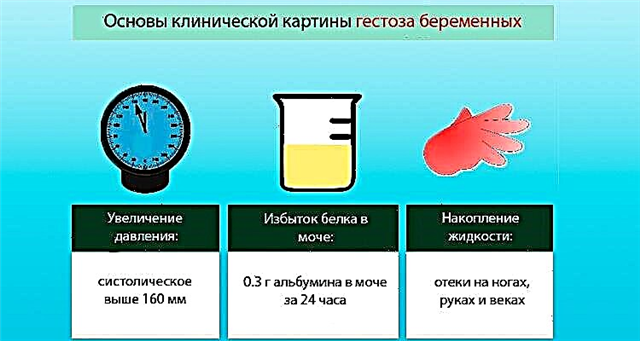Laryngitis is an inflammation of the larynx, which can occur for many reasons, not all of which are associated with pathogenic microbes. In its acute form, the disease is not dangerous, but extremely unpleasant. And the chronic one is capable of provoking the development of various complications. Therefore, it is necessary to start treatment as early as possible. Moreover, there are no special medicines for laryngitis. How and how to treat the disease depends on the cause of the disease and the characteristics of its course. Therefore, it is best to see a doctor.
Main reasons
 A common cause of laryngitis is a common cold, especially in people with removed tonsils. Cold air, getting directly on the laryngeal mucosa, causes irritation, deterioration of blood circulation and reduces the overall resistance of the body to various diseases. Such inflammation is usually not accompanied by a strong increase in temperature and can be quickly dealt with using folk methods.
A common cause of laryngitis is a common cold, especially in people with removed tonsils. Cold air, getting directly on the laryngeal mucosa, causes irritation, deterioration of blood circulation and reduces the overall resistance of the body to various diseases. Such inflammation is usually not accompanied by a strong increase in temperature and can be quickly dealt with using folk methods.
But there are more serious reasons, which are still necessary to find out and eliminate in order to determine how to treat laryngitis in adults:
- overexertion of the vocal cords - is in second place and for many is an occupational disease (singers, educators, teachers, announcers, etc.);
- poor working conditions - work in metallurgical, woodworking, leather, weaving, furniture shops; in construction, in mines, etc .;
- exposure to physical irritants or mechanical damage to the larynx: surgery on the ligaments or tonsils, fish or bird bone, hard croutons, fine sand, etc.;
- chemical or thermal burns of the larynx - food that is too hot or spicy, concentrated vinegar, inhalation of toxic fumes;
- heavy smoking (more than a pack of cigarettes per day) - almost always leads to chronic laryngitis, since the mucous membranes are simultaneously affected by high temperature and a mixture of toxic substances;
- infectious diseases that provoke inflammation of the upper respiratory tract: scarlet fever, diphtheria, whooping cough, influenza, chickenpox, tonsillitis, etc.;
- frequent and severe allergic reactions, accompanied by edema and inflammation of the laryngeal mucosa;
- untreated dental caries is a constant source of infection and contributes to the development of inflammation;
- reflux disease, in which the larynx is constantly irritated due to gastric secretions entering it through the esophagus;
- chronic rhinitis and sinusitis, in which thick mucus is constantly secreted, flowing down the back of the larynx.
Thus, the remedies for laryngitis must be selected so that they act not only directly on the sore throat, but also contribute to the elimination of the cause that caused the inflammation. Otherwise, it will not be a recovery, but only a temporary relief, and the disease will gradually turn into a chronic form.
Acute symptoms
At first, laryngitis always occurs in the acute stage, which has rather clear-cut symptoms that make it possible to quickly identify the disease:
 severe sore throat - it is almost impossible to speak, swallow, even just chew food;
severe sore throat - it is almost impossible to speak, swallow, even just chew food;- paroxysmal barking cough until vomiting, which after a short time is replaced by wet, and bloody discharge is found in the mucus;
- a significant increase in the size of the submandibular lymph nodes, their pronounced pain on palpation;
- persistent increase in temperature, sometimes up to 39-40OWith which even antipyretics can hardly cope;
- depending on the form of the disease, there is a sensation of a lump of mucus in the throat, difficulty breathing through the mouth, difficulty in swallowing saliva and liquid.
All of these symptoms are a sufficient reason to immediately seek medical help. It is possible to treat laryngitis in an adult at home, if the patient's condition is not extremely serious.
But not a single folk remedy for laryngitis can cope with its purulent form or a very strong inflammation of an infectious nature. Here we need effective drugs for the treatment of laryngitis: antiviral, antibiotics, etc., and only a doctor should prescribe them.
General rules
Regardless of how to treat laryngitis - with folk methods or pharmaceutical preparations, it is necessary to observe several rules from the very first day of the disease, which will significantly speed up the recovery process:
 complete rest for the throat: talk less, and for the first couple of days it is better to be silent altogether;
complete rest for the throat: talk less, and for the first couple of days it is better to be silent altogether;- giving up bad habits: smoking and alcohol are very irritating to the throat - give them up at least until complete recovery;
- oxygen access: ventilate the room at least 2-3 times a day, but if the air is cold, go to another room or cover yourself well with a blanket;
- strict diet: everything spicy, sour, salty, soda, sauces and marinades, spices and spices are excluded from the menu; with severe sore throat - only rubbed or semi-liquid food;
- cleanliness in the room: house dust is one of the strongest household allergens, thorough wet cleaning should be carried out at least every other day;
- lack of irritants: strong-smelling flowers, pets, perfumes, fish food may not bother a healthy person, but very irritate a sore throat - it is better to keep them away for now;
- even heat: it is necessary to avoid both hypothermia and overheating, stay away from drafts and a working air conditioner.
Such measures will create optimal conditions for the fastest possible recovery of mucous membranes. But it is equally important to choose the right drugs for laryngitis, and even better to combine them with alternative methods of treatment.
Treatment regimen
Treatment of laryngitis in adults with only herbal preparations or "grandmother's" methods will give a quick and good result only if a person has strong immunity, and laryngitis is of a non-infectious nature.
If, according to the results of the analysis, it turns out that the causative agent of the disease is staphylococcus, streptococcus or other infection, then most likely, you cannot do without antibiotics.
 When the disease is diagnosed on time, acute catarrhal laryngitis can be treated with topical antibacterial drugs - using sprays or lozenges. They act directly on the inflamed mucous membranes, and do not adversely affect the intestinal microflora and immunity, like systemic drugs. Such drugs for laryngitis as "Bioparox", "Grammicidin", "Septefril", "Strepsils" are quite effective.
When the disease is diagnosed on time, acute catarrhal laryngitis can be treated with topical antibacterial drugs - using sprays or lozenges. They act directly on the inflamed mucous membranes, and do not adversely affect the intestinal microflora and immunity, like systemic drugs. Such drugs for laryngitis as "Bioparox", "Grammicidin", "Septefril", "Strepsils" are quite effective.
What antibiotics of systemic action (pills or injections) to treat laryngitis in an adult is decided by the attending physician, based on the results of laboratory tests that help determine the pathogen and the degree of development of the disease. Injections are usually prescribed if a person is simply unable to swallow the pills due to a severe sore throat. The group of drugs, dosage and specific medicine for laryngitis are selected individually.
In addition to antibiotics, depending on the general condition of the patient, they are prescribed:
 throat sprays with anti-inflammatory and antiseptic effects;
throat sprays with anti-inflammatory and antiseptic effects;- antipyretic drugs if the body temperature exceeds 38.5OWITH;
- expectorant drugs for copious accumulation of mucus;
- antihistamines - if breathing is difficult due to severe swelling of the larynx;
- anti-inflammatory - to prevent the further spread of inflammatory processes;
- antitussive - to reduce the load on the ligaments with paroxysmal barking cough;
- fortifying - to increase the tone and defenses of the body: multivitamin complexes and / or immunomodulators.
Many people treat laryngitis on their own only with cough syrups. In 90% of cases, this approach is ineffective and can even lead to the development of complications with the wrong choice of means.
Self-medication is especially dangerous if there is a high fever and you are not sure about the nature of the disease.
Traditional methods
Traditional folk remedies help well when the non-infectious inflammation is not yet too strong, it has not touched the deep tissues of the throat and there is no purulent discharge at all. At body temperature up to 37.2OAll heating procedures that help to overcome the disease faster are allowed:
 Mustard plasters. With laryngitis, they are usually placed for 10-15 minutes, but not on the chest, but on the base and back of the neck. After the procedure, be sure to wrap your throat with a warm scarf. Do before bed every other day. It is important - with a barking cough, a mustard plaster can provoke an attack, and with a wet cough, it will significantly accelerate the passage of mucus.
Mustard plasters. With laryngitis, they are usually placed for 10-15 minutes, but not on the chest, but on the base and back of the neck. After the procedure, be sure to wrap your throat with a warm scarf. Do before bed every other day. It is important - with a barking cough, a mustard plaster can provoke an attack, and with a wet cough, it will significantly accelerate the passage of mucus.- Trituration. An effective procedure that, if used correctly, combines heating with inhalation. You can rub the upper chest and sides of the neck, avoiding the area where the thyroid gland is located. Herbal balms with menthol, eucalyptus or camphor, alcohol tinctures of propolis, calendula, elecampane are useful. Wrap your throat warmly and go to sleep.
- Compresses. A common mistake is to leave the compress overnight. It is set for a maximum of 2-3 hours, but it is really better to do it before bedtime. The simplest thing is an ordinary vodka compress: soak cotton wool with vodka, line the neck, wrap it in cellophane and wrap it warmly on top. With a compress, you need to lie quietly and not talk. After the procedure, you cannot go outside, and it is better to leave your throat wrapped up or wear a turtleneck sweater.
- Inhalation. In this case, modern methods of treatment with a nebulizer are ineffective. A finely dispersed solution simply flies through the throat and settles on the bronchi. Therefore, you need to use a steam inhaler or just breathe over a saucepan with soda solution, herbal decoctions, dissolved essential oils. Duration of inhalation is up to 10 minutes, you can do it 1-2 times a day.
- Warming up with a lamp. An excellent way to treat laryngitis at home. If there is a device that allows you to perform infrared heating directly in the oral cavity - ideal! But even external heating in acute and chronic forms gives excellent results. A blue lamp, solux, bioptron are also suitable.
 Gargling with laryngitis is a necessary element in any method of treatment, and it should be done at least 5-6 times a day. For rinsing, it is better to take a solution of sea salt, chlorophyllipt, furacillin. If you irrigate with a spray immediately after it or dissolve a cough tablet with an antibiotic, the result of their effect will noticeably increase, since the throat will be cleared of mucus.
Gargling with laryngitis is a necessary element in any method of treatment, and it should be done at least 5-6 times a day. For rinsing, it is better to take a solution of sea salt, chlorophyllipt, furacillin. If you irrigate with a spray immediately after it or dissolve a cough tablet with an antibiotic, the result of their effect will noticeably increase, since the throat will be cleared of mucus.
A warm drink can help relieve pain and sore throat. It also helps to eliminate toxins that accumulate in the liver when taking medications. You can drink green or herbal tea with the addition of honey, warm milk, breast herbal tea.
Milk creates a thin protective film on the mucous membrane, which for some time protects against irritation, so it is useful to drink it at night. To enhance the effect, you can add cocoa butter, soda or goat fat to the milk.
Complications and prevention
Infectious laryngitis is treated by everyone and always. And non-infectious inflammation of the larynx is often ignored, not counting as a serious illness and wait until it goes away on its own. Sometimes this happens, but more often the acute inflammatory process turns into a sluggish one, and then leads to the development of complications, the most harmless of which is hoarseness and subsequently a complete loss of voice.
Against the background of untreated infectious laryngitis, a purulent abscess, tracheitis, chronic tonsillitis, stenosis of the larynx, nodes on the ligaments and many other troubles may appear. Therefore, treatment should not only start on time, but also bring it to full recovery, which can only be confirmed by a doctor.
The most dangerous and common mistake is to interrupt antibiotic treatment when the first improvement occurs. Surviving microbes mutate quickly and next time they will not be afraid of this type of drug. In addition, they create a permanent focus of infection, provoking a new outbreak of the disease at the slightest decrease in immunity.
 Laryngitis prevention measures are the same as for other respiratory diseases: first of all, you need to regularly exercise and perform hardening procedures in order to strengthen the immune system. To reduce the risk of developing the disease will help:
Laryngitis prevention measures are the same as for other respiratory diseases: first of all, you need to regularly exercise and perform hardening procedures in order to strengthen the immune system. To reduce the risk of developing the disease will help:
- regular sanitation of the oral cavity and the absence of caries;
- avoiding drafts, severe hypothermia and sudden temperature changes;
- wearing a headgear in cold and very windy weather;
- quitting bad habits, especially smoking;
- correct diction and singing technique;
- the use of personal protective equipment in "harmful" industries;
- avoiding contact with people infected with respiratory infections.
It is equally important to constantly monitor your health, eat right, prevent severe exacerbation of chronic diseases and visit a doctor at the first sign of an acute infection. This will not leave the disease a chance for rapid development, and even more so for the transition to a chronic form.

 severe sore throat - it is almost impossible to speak, swallow, even just chew food;
severe sore throat - it is almost impossible to speak, swallow, even just chew food; complete rest for the throat: talk less, and for the first couple of days it is better to be silent altogether;
complete rest for the throat: talk less, and for the first couple of days it is better to be silent altogether; throat sprays with anti-inflammatory and antiseptic effects;
throat sprays with anti-inflammatory and antiseptic effects; Mustard plasters. With laryngitis, they are usually placed for 10-15 minutes, but not on the chest, but on the base and back of the neck. After the procedure, be sure to wrap your throat with a warm scarf. Do before bed every other day. It is important - with a barking cough, a mustard plaster can provoke an attack, and with a wet cough, it will significantly accelerate the passage of mucus.
Mustard plasters. With laryngitis, they are usually placed for 10-15 minutes, but not on the chest, but on the base and back of the neck. After the procedure, be sure to wrap your throat with a warm scarf. Do before bed every other day. It is important - with a barking cough, a mustard plaster can provoke an attack, and with a wet cough, it will significantly accelerate the passage of mucus.

